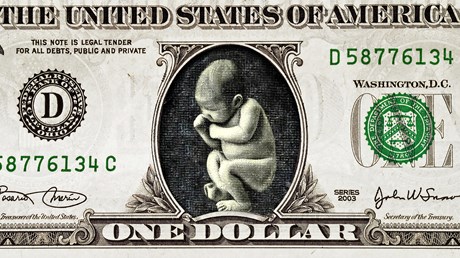Abortion has been a national institution for nearly 50 years. Where should Christians spend their pro-life dollars now?

During the past 49 years of abortion debates under Roe v. Wade, some have lost track of how profits and poverty drive the issue—and why pro-life Christians must continue to innovate as we put our money where our mouths are.
A common argument for a pro-choice ethic is that abortion access is good for the economy. Many like US Treasury Secretary Janet Yellen argue that limiting abortion access will only make things worse financially for vulnerable women. And if resources for pregnant mothers do not continue to improve, this is an understandable argument.
Seventy-five percent of abortions occur in households living on less than twice the federal poverty level, and nearly half are below the poverty line, according to Centers for Disease Control and Prevention data. Sixty percent of women who choose abortion already have children, and 55 percent are single. Presently, there is little economic incentive for single women already struggling to feed their children to have another child.
Yellen and others also suggest the economy at large will suffer if abortion access is restricted. Already harrowing workforce dropout rates will only increase and having more mouths to feed in already disadvantaged homes will result in more poverty.
If you follow this line of fiscal logic, one could argue abortion access can lead our 401(k)s to expect pregnant workers will forgo maternity leave and maintain uninterrupted productivity. It can lead our tax bills to expect fewer households will enroll in government assistance after an unplanned pregnancy. If this is the case, then perhaps we have all blindly yet complicitly profited from the economy of abortion.
However, this by no means suggests abortion access is good for ...
from Christianity Today Magazine
Umn ministry


.gif)

.gif)
.gif)
